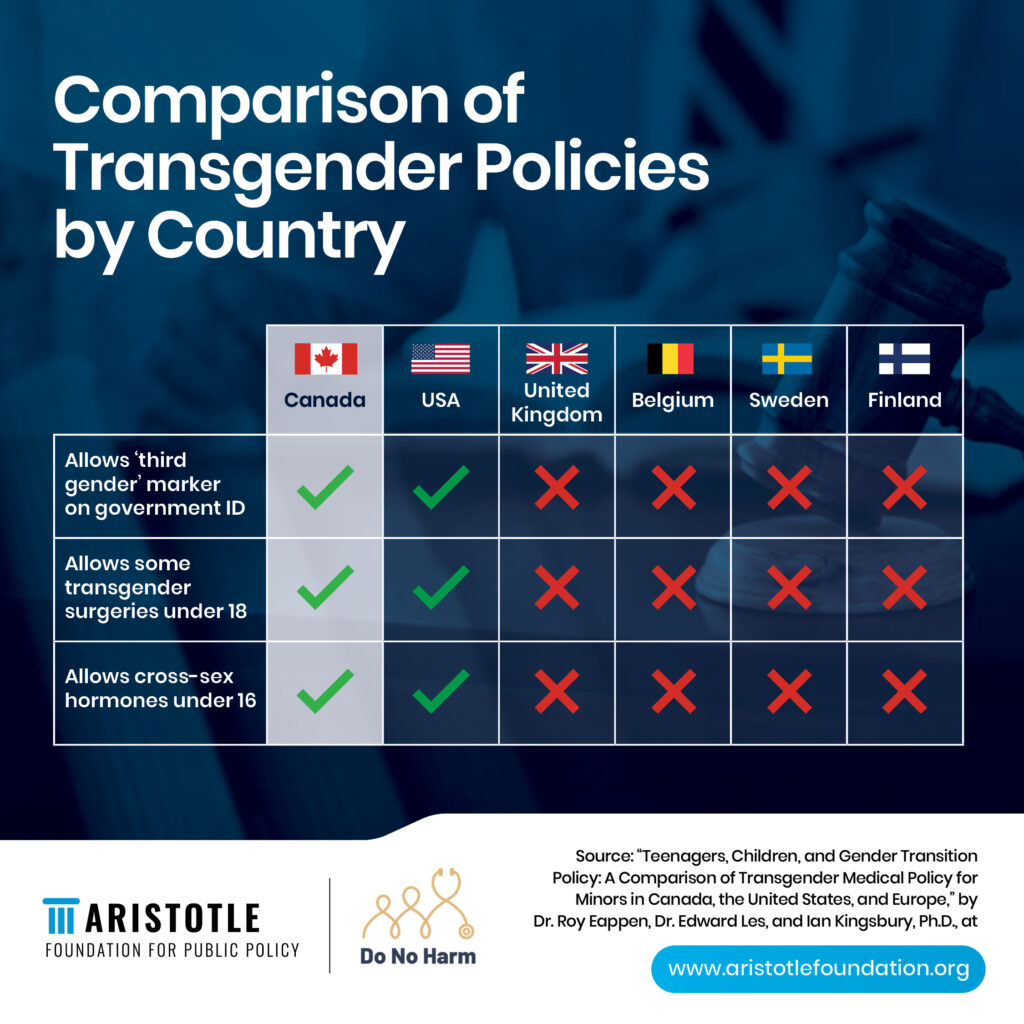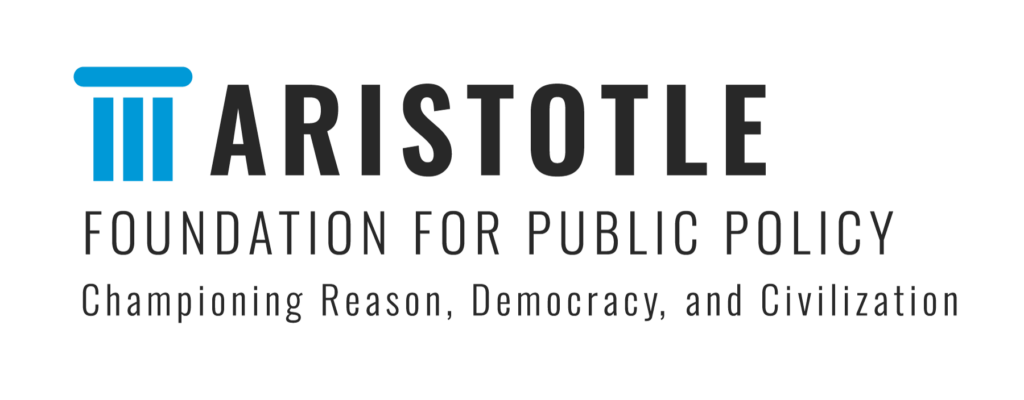
July 29, 2024
FOR IMMEDIATE RELEASE
———-
CALGARY: A new study from the Aristotle Foundation for Public Policy and Do No Harm compares Canada and the United States’ gender-transition policies for minors with those of Northern and Western Europe.
The North American approach to transgender medical treatment for minors is known as “gender affirmation.” It assumes gender incongruence can manifest as early as age four and that questioning a minor’s gender self-definition is harmful and unethical. On the other hand, Northern and Western Europe, which broadly share the same social values as Canada and the United States, have begun to reject such automatic assumptions as regards minors.
In Teenagers, Children, and Gender Transition Policy: A Comparison of Transgender Medical Policy for Minors in Canada, the United States, and Europe, authors Dr. Roy Eappen (MDCM), Dr. Edward Les (MD), and Dr. Ian Kingsbury (PhD) compare the growing divide in approaches, by examining nine medical public policies across jurisdictions. For example:
Minimum age for puberty blockers:
Minimum age for cross-sex hormones
Legal gender on government-issued documents (all ages)

“Our policy review reveals that Canada and some U.S. states are the most permissive in the world when it comes to the legal and medical gender transition of minors,” notes lead author and practicing endocrinologist Dr. Roy Eappen, “Here, at a much younger age than Europe, patients are eligible for invasive surgeries that are potentially irreversible and medically harmful.”
“Given the growing European shift, which is grounded in medical science,” remarks co-author Dr. Edward Les, a practicing pediatrician, “and in the interests of protecting the most vulnerable, Canada and the United States should follow the lead of countries such as Sweden, England, and Scotland in reconsidering the gender-affirming care model.”
Link to the study: Teenagers, Children, and Gender Transition Policy: A Comparison of Transgender Medical Policy for Minors in Canada, the United States, and Europe.
To arrange for an author interview, note the contact below.
-30-
MEDIA CONTACT TO ARRANGE INTERVIEWS
Joanne Birce, Administrative Coordinator
Aristotle Foundation for Public Policy
Email: media@aristotlefoundation.org
Like our work? Think more Canadians should see the facts? Please consider making a donation to the Aristotle Foundation.

The logo and text are signs that each alone and in combination are being used as unregistered trademarks owned by the Aristotle Foundation. All rights reserved.
The Aristotle Foundation for Public Policy is a registered Canadian charity. Our charitable number is: 78832 1107 RR0001.
SUBSCRIBE TO OUR NEWSLETTER